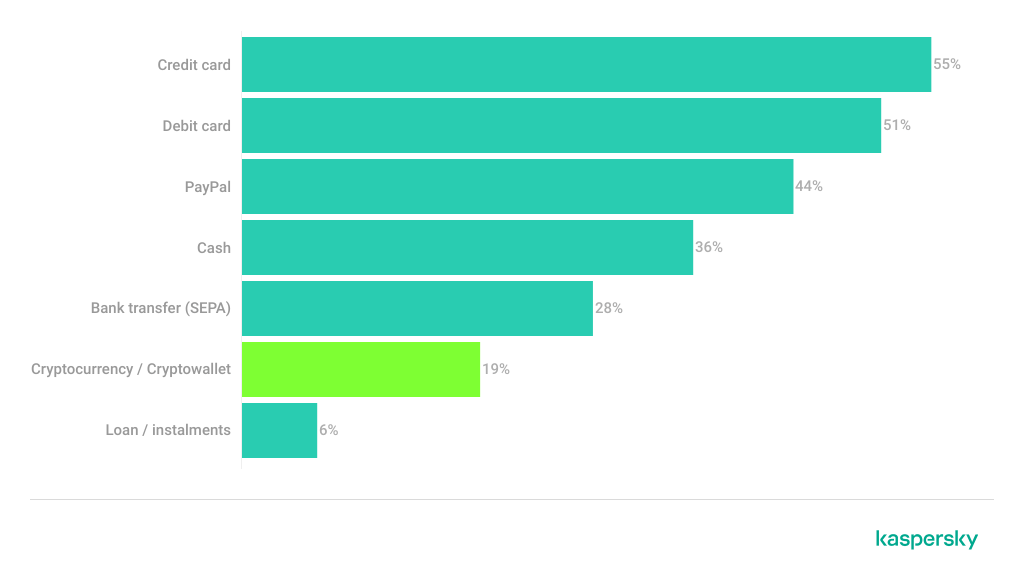
Changing the game in retail with advanced shopping strategies. (Source – Kaspersky).
How shopping for games is changing the face of retail, and driving cybersecurity
- Gamers are reshaping retail and cybersecurity during sales events, focusing on strategic ways of shopping for games.
- The gaming community’s influence on retail trends is growing, especially in cryptocurrency use and digital security.
- Gamers’ dynamic shopping strategies during sales events are driving changes in consumer behavior and retail.
Shopping for games may seem like a workaday experience – but that would be to mischaracterize the impact of the action completely. As Black Friday and Cyber Monday continue to mark key moments in the global retail calendar, the gaming community’s excitement reaches unprecedented heights. These events offer more than just standard discounts; they present an opportunity for gamers to significantly enhance their gaming experience.
A recent Kaspersky study revealed that 71% of gamers seize on these occasions to acquire various items from their wishlists, underlining the importance of these discount seasons in their gaming journey.
Explosive growth and transformation of shopping for video games and its market
The global video games market is witnessing a remarkable surge, forecasted to grow at an annual rate of 9.3% from 2023 to 2028. By 2028, the industry is expected to amass nearly US$390 billion in market value, reflecting the soaring popularity of video games as a significant form of entertainment globally. This growth extends beyond gaming and shopping for games as such, into gamers’ shopping behaviors, paralleling the general consumer population’s enthusiasm for sales events.
During these sales, the strategic and focused nature of gamers becomes evident. Approximately 74% of gamers view these sales as essential for upgrading their gaming setups, often setting alerts for new game and equipment releases to ensure they don’t miss out. Their eagerness to embrace the latest gaming technology showcases their passion and anticipation for these events. They are the textbook definition of engaged consumers.
Simultaneously, spontaneous buying is also prevalent among gamers. Around 48% often find themselves influenced by unexpected offers or influencer endorsements, adding an element of excitement to their shopping experience during these sales. This spontaneity complements their well-thought-out purchase strategies, demonstrating the dynamic nature of consumer behavior in the gaming community.
In line with broader consumer trends, gamers primarily use smartphones (79%) and PCs (49%) to access sales, underscoring the blend of convenience and accessibility offered by modern technology. The increasing adoption of cryptocurrency further highlights this tech-savvy approach as a payment method in the gaming world. Despite security concerns, a considerable segment of consumers, especially those aged 25 to 44, are incorporating cryptocurrency into their transactions, extending to online and in-store purchases.

The rise of strategic game shopping online. (Source – Kaspersky).
Cryptocurrency’s emerging role in retail
Cryptocurrency’s role in consumer spending is rapidly evolving. It’s not merely an alternative payment method but is increasingly viewed as the future of online shopping. During major sales events like Black Friday, 51% of consumers prefer paying with cryptocurrency, reflecting a shift in payment preferences. The diverse use of cryptocurrency among consumers spans various purchases, extending beyond gaming-related items to daily necessities and significant investments.
Retailers are now facing the challenge of adapting to the growing demand for cryptocurrency payments. With 68% of consumers expressing a desire to use cryptocurrency for specific purchases but encountering limitations, retailers need to integrate cryptocurrency as a viable payment option. Bitcoin remains the most trusted cryptocurrency option, with 83% of consumers considering it safe, followed by Ethereum and USD Coin. Despite concerns about volatility and scams, the inclination toward regular cryptocurrency use is unmistakable, signaling a potential shift in transaction methods for the future.
The video gaming industry, poised to reach an annual revenue of US$249.60 billion in 2023, has encouraged players to invest more in in-game items and gaming equipment. This spending trend is particularly noticeable during Black Friday and Cyber Monday, with gamers strategically leveraging these sales. Their use of cryptocurrency during these events underscores the convergence of gaming passion with modern shopping strategies.
Marina Titova, vice-president of consumer product marketing at Kaspersky, emphasizes the importance of security in the digital world. Kaspersky Premium, for example, offers comprehensive solutions, including online payment and identity protection, a data leaks checker, and a reliable VPN to ensure safe gaming and shopping experiences.
The involvement of the gaming community in global sales events is a multifaceted mix of strategy, spontaneity, and technological adaptation. As the gaming industry expands, its influence in shaping retail trends, particularly in adopting innovative payment methods like cryptocurrency, grows. Gamers’ participation in these sales events goes beyond enhancing their gaming experience; it reflects their role as influential consumers in the real world, setting new trends in consumer spending and indicating a significant shift in the retail and digital payment industries.
Kaspersky’s tips for secure online shopping – for games, and everything else
As the fusion of gaming enthusiasm with savvy shopping strategies during sales events becomes more prominent, it’s crucial to consider the aspect of digital security. In this regard, Kaspersky offers several practical tips to enhance online shopping security, essential to gamers and general consumers.
Directly enter the store’s URL
To avoid falling prey to phishing attempts, Kaspersky advises manually typing the store’s URL into the web browser’s address bar instead of clicking on links in emails. This precaution helps bypass fraudulent sites that mimic legitimate ones, protecting personal and financial information.
Opt for a temporary or virtual credit card
To further safeguard against data theft, especially during high-traffic sales seasons, utilizing temporary or virtual credit cards is recommended. Provided by many banks, these cards generate a new account number for each transaction, reducing the risk of financial information being misused by hackers.
Use a password manager for strong, unique passwords
Managing multiple passwords can be daunting in the era of complex digital interactions. Kaspersky suggests using a reliable password manager to create, manage, and secure unique passwords for different online accounts, enhancing overall cybersecurity.
These security measures, combined with gamers’ strategic shopping habits and technological savviness, contribute to a safer and more enjoyable online shopping experience. It underscores the importance of being vigilant and proactive about digital security, especially in an era where gaming, shopping, and technology are increasingly intertwined.

Gamers are highly engaged shoppers – and they’re using cryptocurrency for their purchases.
As the gaming industry continues to influence global markets and consumer trends, understanding the dynamics of digital security becomes pivotal. Gamers, at the forefront of embracing new technologies and shopping methods, also need to be aware of safeguarding their online presence. This comprehensive approach, blending gaming enthusiasm with smart shopping tactics and robust digital security practices, encapsulates the future of consumer behavior. It heralds a new era where gaming, shopping, and secure digital transactions coexist, shaping the landscape of retail and online entertainment.
READ MORE
- 3 Steps to Successfully Automate Copilot for Microsoft 365 Implementation
- Trustworthy AI – the Promise of Enterprise-Friendly Generative Machine Learning with Dell and NVIDIA
- Strategies for Democratizing GenAI
- The criticality of endpoint management in cybersecurity and operations
- Ethical AI: The renewed importance of safeguarding data and customer privacy in Generative AI applications




